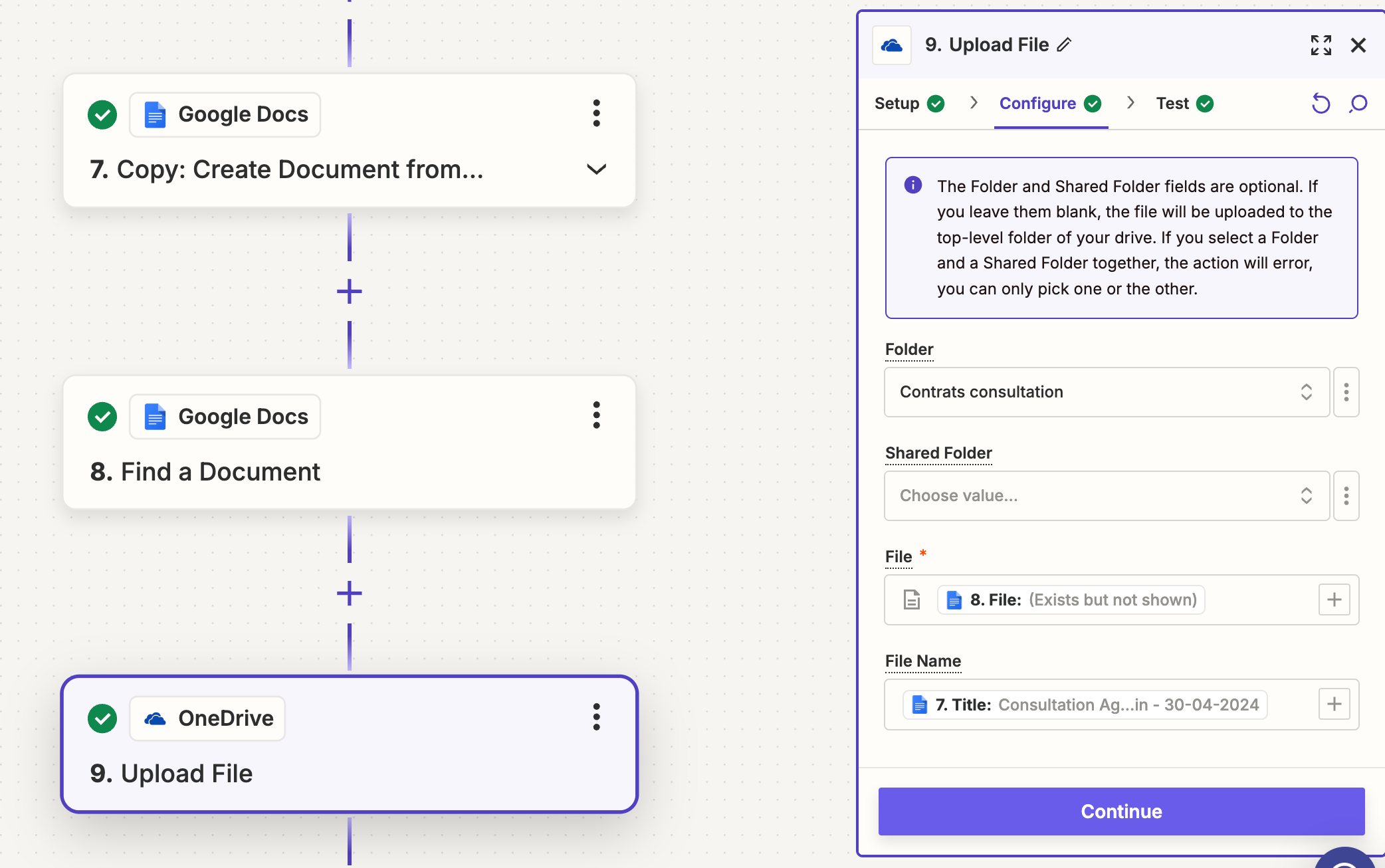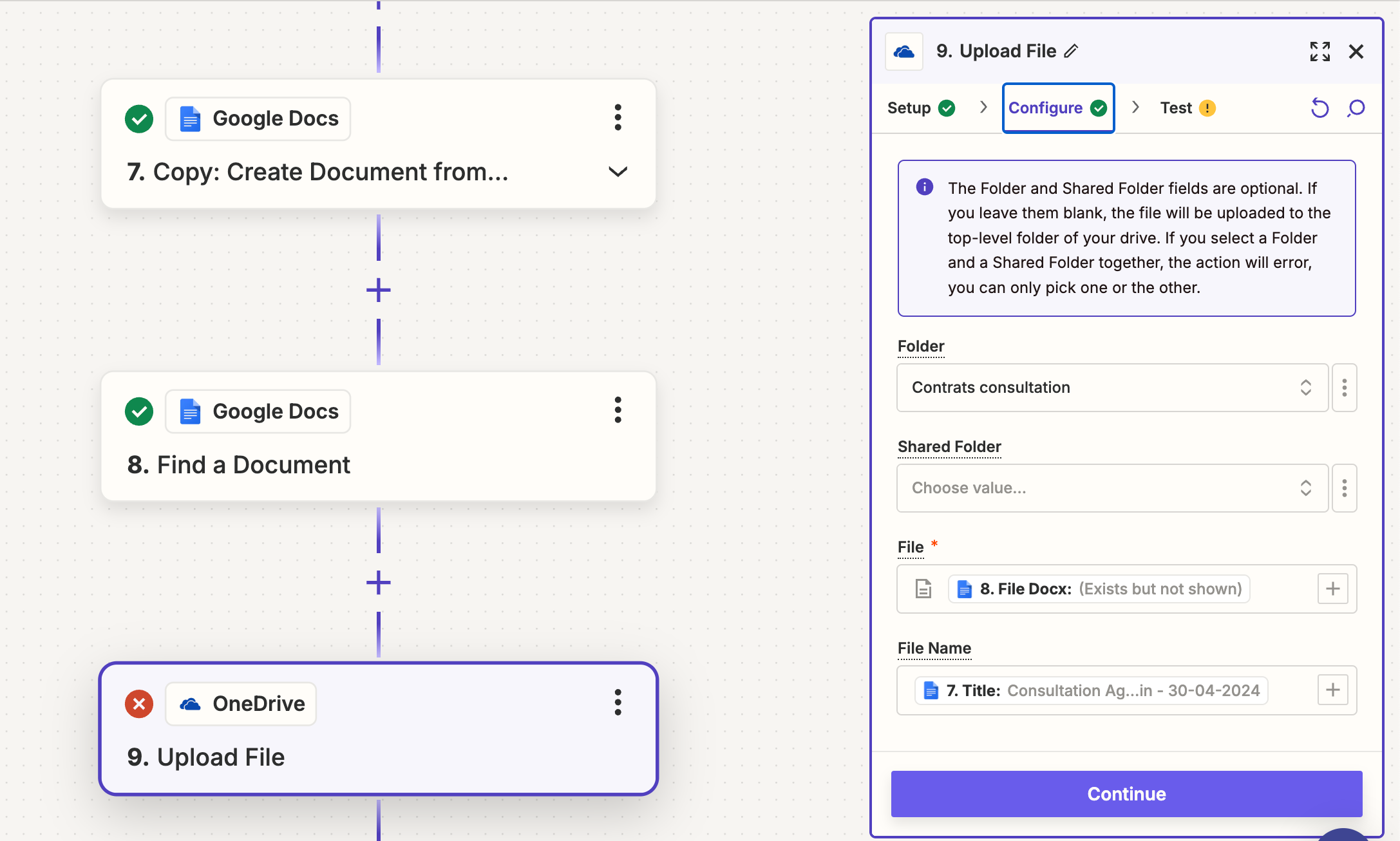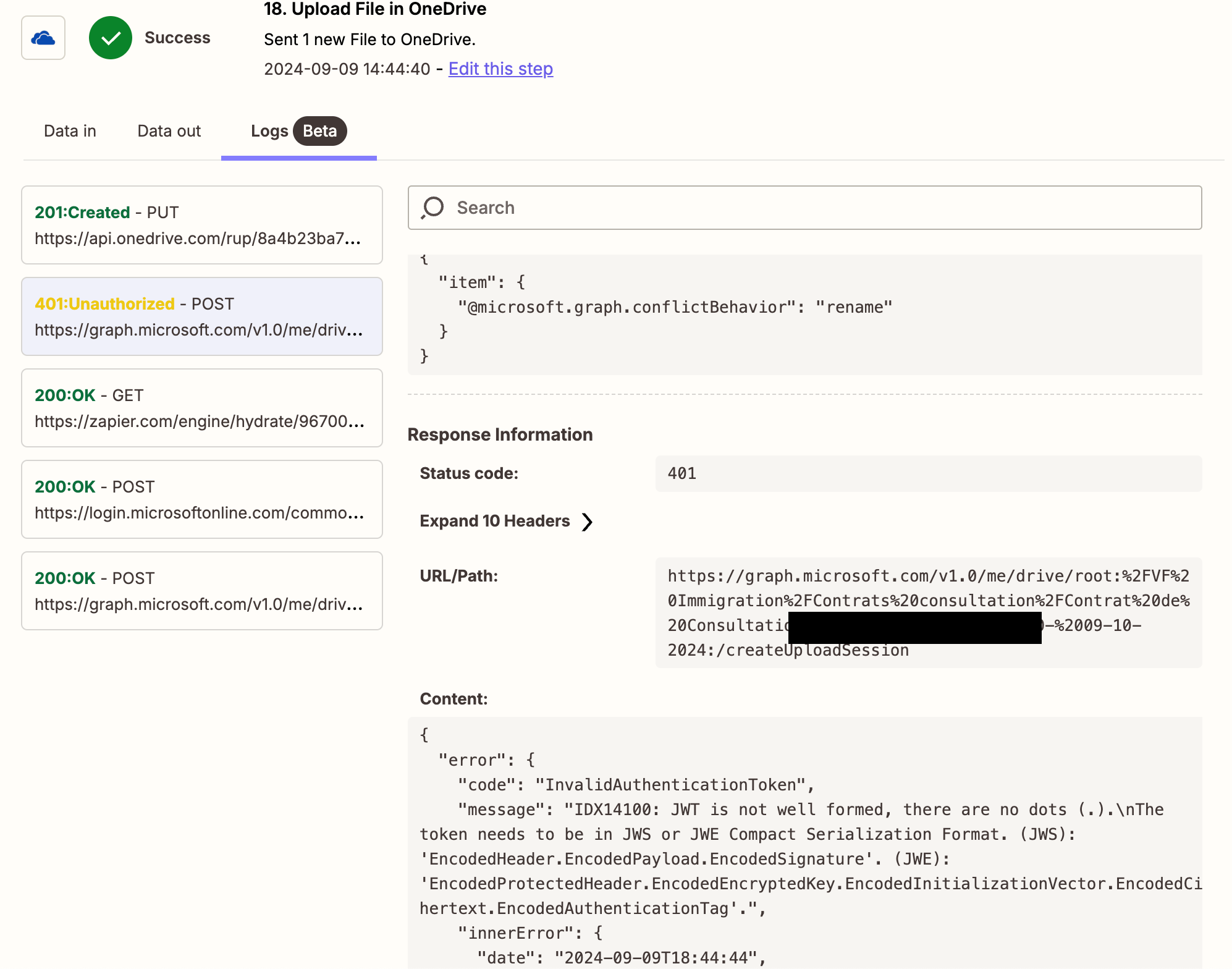I have a zap that creates a file from a google doc template and then sends it to a onedrive folder. It works, but its sending the file as text/google doc format when using the “file” object. I tried using the “file docx” object, but I get errors. is there something to know?
Best answer
How can I send Google Docs file as .docx to OneDrive folder?
Best answer by VF Immigration
Hi, thanks for the info, but My two steps don’t have any delays. I tested all the steps and even ran the published version and it still didn’t work.
After testing multiple ideas that I had, I found that hard-coding the format in the title parameter gave the right results. So i just ended up adding ”.docx” manually to the file name parameter in my zap.
This post has been closed for comments. Please create a new post if you need help or have a question about this topic.
Enter your E-mail address. We'll send you an e-mail with instructions to reset your password.










